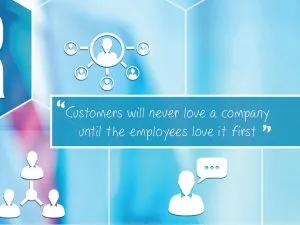A skilled mediator, trainer and conflict coach, Mia specialises in resolving difficult conflict as well as providing mediation skills training. Mia has worked with directors and boards restructuring organisations, individuals in conflict. In addition to Commercial clients, she has worked with Members of Parliament, governments, religious organisations (including the Church of England), NGOs, and charities. She has also spoken at Chatham House on conflict resolution.
Why is it that human resources can be so unpopular? In some organisations where I have run workshops or coaching clinics, they set up a separate email address thinking that staff might not attend if the email came from HR. The tragedy is that a good Human Resources department performs a vital role in an organisation. Unfortunately, HR is often undervalued and underappreciated. The use of mediation, in a variety of forms, and mediation skills training could help turn that around. It could make HR more approachable and more of a resource for organisations, both preventing disputes and improving organisational culture.
For many people, bringing any matter to HR is daunting. This is understandable given that any kind of formal grievance involves a significant process that can impact lives. But what about those smaller or medium-size issues, many of which eventually turn into larger issues and formal grievances? Not making HR more approachable for matters at earlier stages means that they have to escalate before they can be resolved.
Setting aside the considerable direct financial cost, in terms of capital and man hours spent preparing for an employment tribunal or going through a grievance procedure, there is the personal cost to each individual involved, as well as to the morale of the wider team they work in. That cost can have a huge impact on workplace culture and overall productivity. This means more stress, broken relationships at work, stressed teams and a less productive working environment. So why is HR not the first port of call when employees begin to feel anxious about a situation at work?
ACAS suggests doing our best to resolve situations informally. And perhaps most HR professionals do that. But do organisations do enough early on and are most HR professionals sufficiently equipped to really deal with these issues on a less formal footing? To be fair, most people, including HR professionals, are not comfortable with conflict or able to support people who are in conflict in a meaningful and authentic way. Those skills require a different sort of training. As a consequence, all too often people end up avoiding conflict. This means that situations have to deteriorate before they are dealt with. As the old adage goes “a stitch in time saves nine”.

The solution comes in three main parts. First, better processes which give more options for resolving issues less formally at an earlier stage. These options include mediation, conciliation and informal intervention of an HR professional trained in mediation skills. Some already exist but all need to be detailed in terms of process and practice and used in every case that comes before HR where they might be appropriate. More often than not the right informal option will save everyone involved time, money, and significant personal costs.
Second, more training in mediation skills and having difficult conversations is key. HR professionals need to be trained in mediation skills so that they can more comfortably support parties. This does not mean that they have to act as mediators (although they might be able to in some instances). Good mediation skills training will mean that they will be more comfortable with conflict and people in conflict. They will be able to help facilitate better discussions where smaller issues arise and be able to be more genuinely supportive when the stakes are higher. It is also helpful for staff to be trained in how to have difficult conversations. In addition to avoiding disputes, this can increase their productivity and creativity, as well as improving team dynamics.
Third, it is important to recognise the trickier situations where it will be necessary to call in a professional mediator. Even with in-house staff mediators, some cases will require more independence and expert skills. At the extreme, I have mediated cases involving multiple grievance claims where HR had almost given up on the possibility of an informal solution and helped find a compromise that all parties were happy to work with.
As Simon Sinek says “Customers will never love a company until the employees love it first”. HR should be a key part of organisational culture. Using mediation skills could change the face of HR making it more approachable. From the employees’ perspective, HR could be a place that they feel they can turn to and seek support in times of need. This is what companies and employees genuinely need to thrive. More use of mediation skills can help prevent grievances and positively transform organisational culture.
Lorem ipsum dolor sit amet, consectetur adipiscing elit, sed do eiusmod tempor incididunt ut labore et dolore magna aliqua. Ut enim ad minim veniam, quis nostrud exercitation ullamco laboris nisi ut aliquip ex ea commodo consequat. Duis aute irure dolor in reprehenderit in voluptate velit esse cillum dolore eu fugiat nulla pariatur.
Block quote
Ordered list
Unordered list
Bold text
Emphasis
Superscript
Subscript